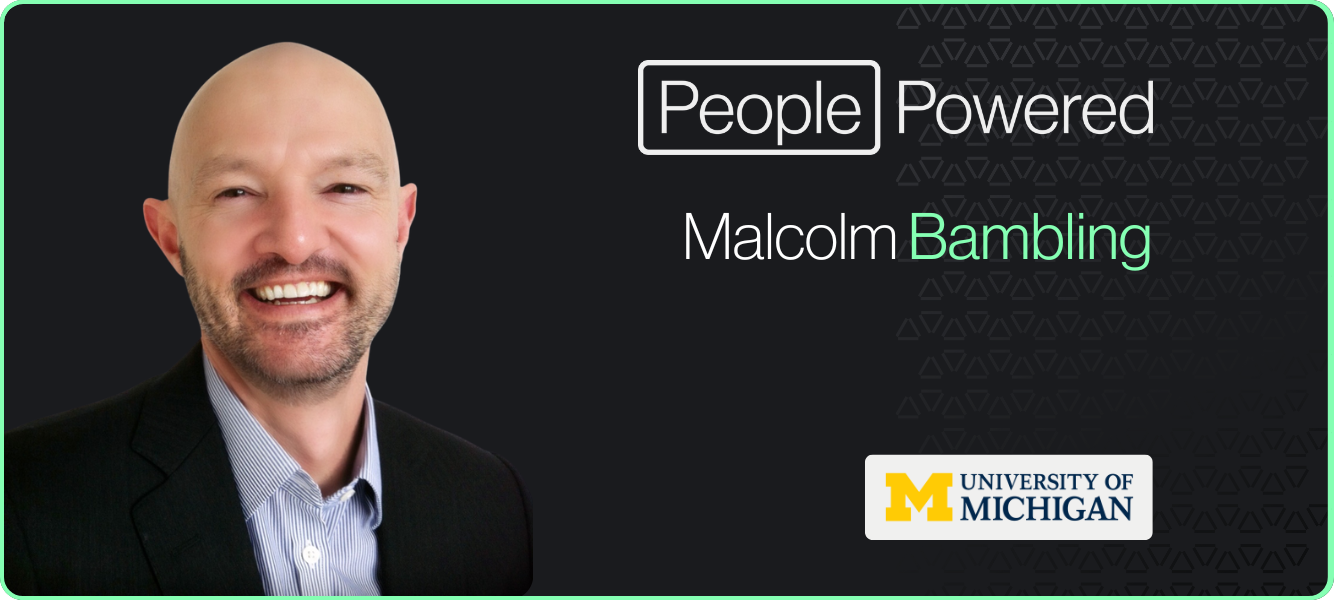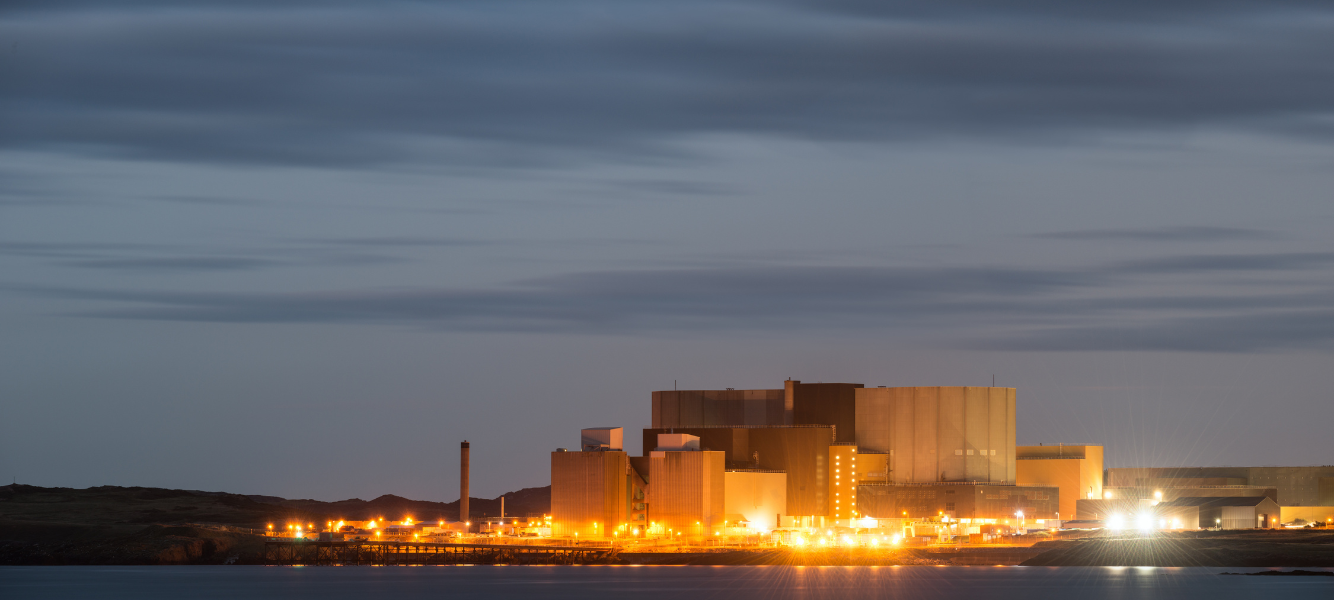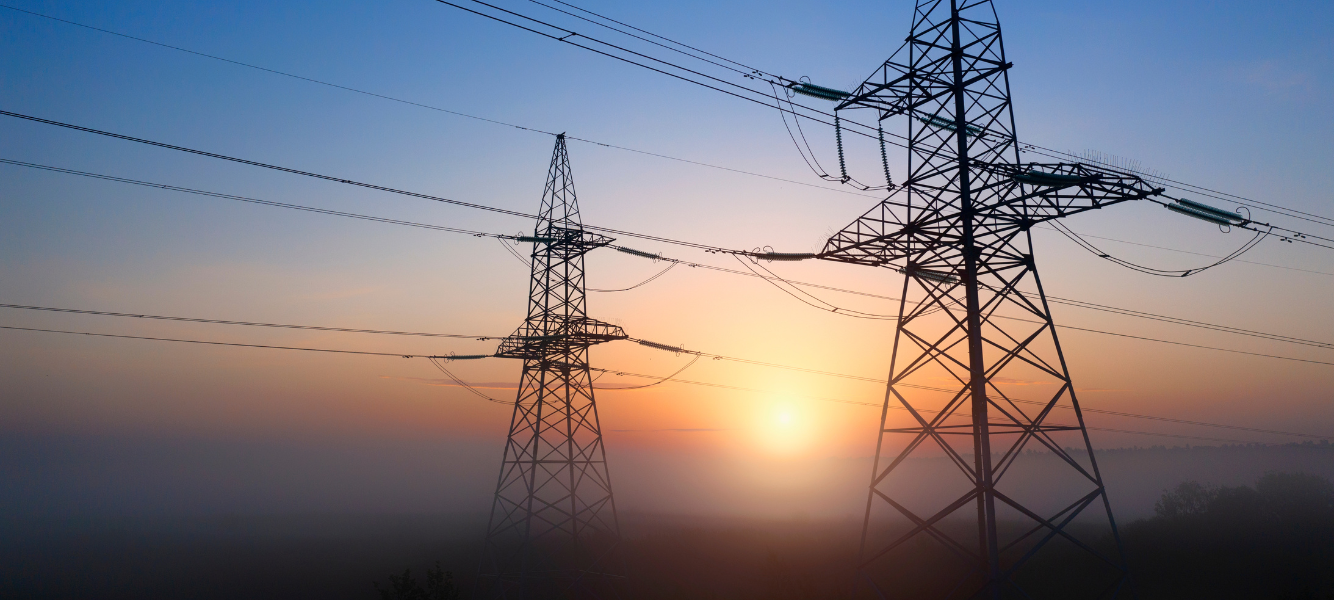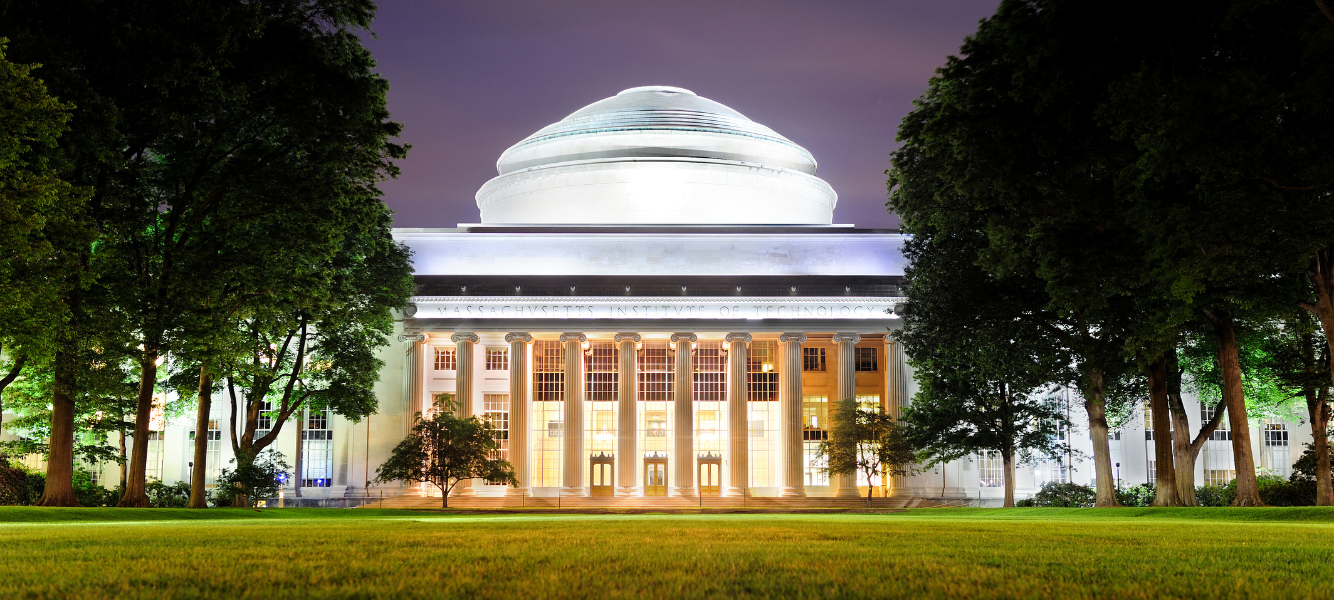In the latest of Astute’s People Powered Profile series, Dan Bisset, VP – North America, delves into the dynamic world of energy production with Malcolm Bambling, Senior Manager of Central Power Plant at the University of Michigan.
With more than 25 years of experience in optimizing the operations of energy production facilities, Malcolm has been a pivotal figure in delivering reliable and sustainable energy services to the campus.
His dedication to safety, compliance, and environmental stewardship aligns seamlessly with his strategic initiatives for continuous improvement.
Read Malcolm’s insight on the evolving landscape of energy management and the innovative practices shaping the future of sustainable energy solutions.
Can you tell us a bit about your career journey so far?
I’ve had the opportunity to work with some amazing people in the energy sector for over 30 years in various positions and in multiple countries.
I originally started my career as an apprentice fitter and turner in Australia and during my apprenticeship, I also undertook additional training in my own time.
This included further technical training, steam and power operations, maintenance planning and estimating.
This was an intense four-year period, but it provided the foundation for my career in the energy sector.
This provided me with the opportunity to work for several different organizations in Australia throughout the 1990s and I eventually left Australia in 2003 to gain experience, both personally and professionally.
I worked in the energy sector in the United Kingdom from 2004 through to 2016 in several different roles.
These positions varied from operations, commercial and contract management, through to the management of teams in the energy sector.
In 2017, I moved to the United States to work at the University of Michigan as I accepted the role of the Central Power Plant Manager.
What are some of the projects you’ve been involved in?
I particularly enjoyed preparing and working on major maintenance projects in Australia and the United Kingdom.
These projects varied from intense 72-hour outages at refineries through to 12-week major overhauls on 500MW steam boilers and generators.
However one of the most challenging projects I worked on occurred in my current role in the United States.
We undertook a major electrical upgrade of our 13kV distribution switchgear and we were installing a new combustion turbine and heat recovery steam generator at the Power Plant.
This project began in January 2020 and was already technically challenging, then we had to manage our way through the project dealing with the COVID-19 pandemic.
How much has the industry changed during your years within it?
The energy sector has changed a lot over the last 30 years with a major shift towards renewable energy sources and a gradual move away from fossil fuels. Here are a few of the top-line changes:
- Fossil fuel decline
- Renewable energy transition
- Emissions regulation
- New technology has emerged
- Government policy
However, I believe the next decade will result in a significant change in the energy sector due to the influence of artificial intelligence.
This will result in a shift towards fully autonomous energy systems, as AI will not only monitor and manage energy but also make strategic decisions to optimize performance and sustainability.
What are some of the biggest challenges the industry is facing?
The United States is forecasted to experience an increase in electricity demand year on year and this varies from 2% to 5% depending on what study you read.
To ensure this growth occurs, we need to manage or mitigate some of the risks facing the sector and these include:
- Grid security (physical and cyber)
- Supply chain risks for critical components (particularly transformers)
- Regulatory challenges (Local, State and Federal)
- The limitations of the grid infrastructure (timeline to install new transmission and distribution)
- Rising costs for the sector (labor and materials)
- Artificial Intelligence (this will need to be carefully managed to ensure it is used to benefit the sector)
- Extreme weather events (this greatly affects the customer experience)
What are some of the skillsets you’re seeing high demand for in the nuclear sector?
If the US undertakes a major transition towards building more nuclear projects, the country will experience a significant increase in demand for a variety of skills and these will include:
- Engineering disciplines (civil, electrical, mechanical, chemical)
- Management and operations personnel (project managers, operations managers and plant operators)
- Specialized technicians (instrumentation and control, nuclear, health and safety)
- Trades personnel to construct and then maintain these assets (electricians, plumbers, pipefitters, welders, carpenters, machinists and millwrights)
Where do you see the deployment of SMRs taking the industry in the next 10 years?
Organizations and customers require resilient and reliable electricity that meets their environmental goals and the deployment of Small Modular Reactors (SMRs) is one energy solution that can meet these needs.
I believe over the next 15 years the installation of SMRs will significantly transform the energy industry, particularly in areas where they do not have abundant wind, solar or hydro capabilities.
As the volume of SMRs being installed increases, this will drive further innovation in this sector, expanding applications and we should experience a further reduction in costs, as these projects are scaled around the world.
With data centers and universities looking at deploying SMRs for their power needs, what impact to do you think this will have on the already stretched talent pool needed to operate and maintain them?
The deployment of SMRs by data centers, universities, and other institutions will undoubtedly increase the demand for a specialized and skilled workforce.
This can have several significant impacts on the already stretched talent pool in the nuclear industry and related fields.
By taking a proactive approach to developing a skilled workforce, data centers, universities, and other institutions can mitigate the impact of deploying SMRs on the talent pool.
Collaboration across educational institutions, industry, and government will be crucial in ensuring there are enough trained professionals to support this transition to SMR technology, ultimately leading to more resilient and reliable energy solutions.
What advice would you give your younger self as you embarked upon your career?
I am a reflective thinker and I’ve often thought about this question.
Over the last 30 years, I’ve had the privilege of working with some very talented people in all disciplines of the energy sector, across multiple countries.
This helped me develop both personally and professionally as I have always been inquisitive and asked a lot of questions, especially if I didn’t understand a particular topic or technical issue.
I would recommend that I should actually ask more questions throughout my career, as I definitely missed some opportunities to gain more knowledge from my colleagues.

















